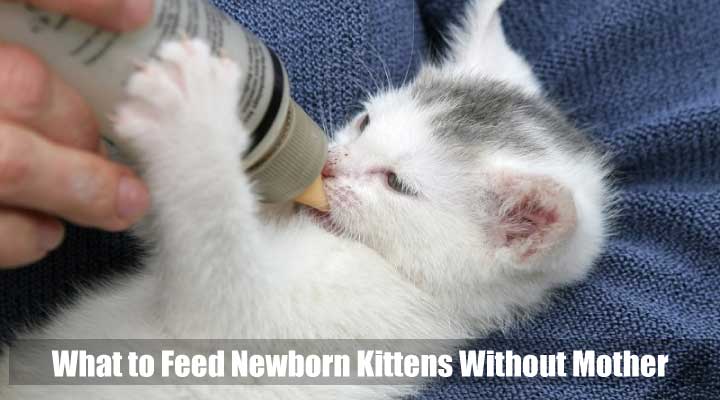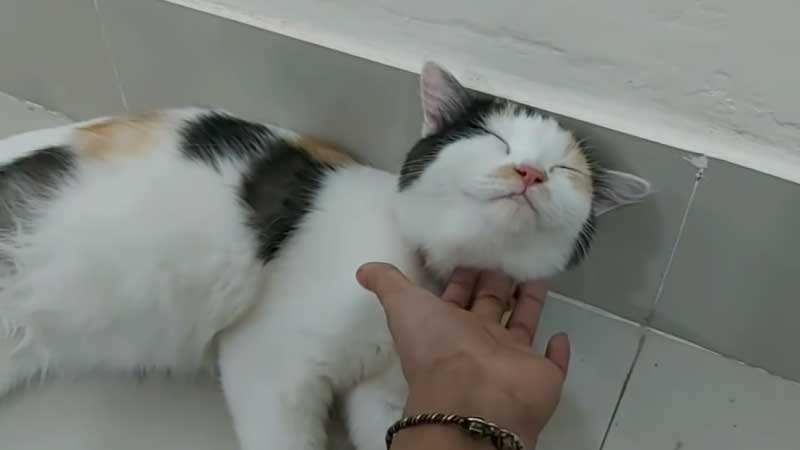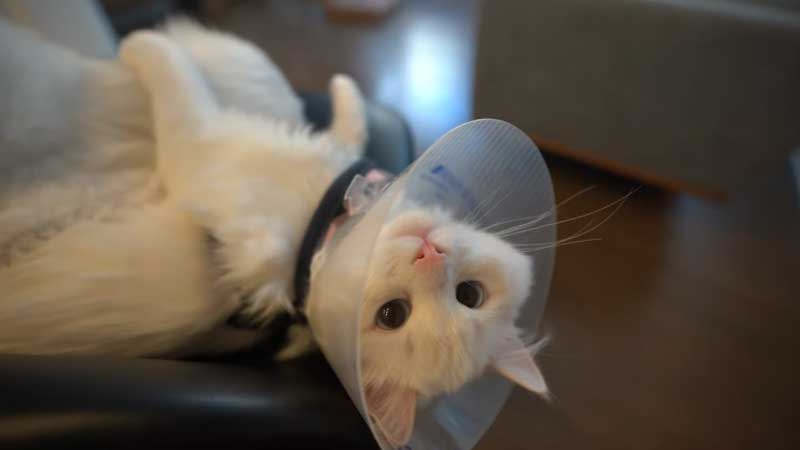The birth of kittens is an exciting time for any pet owner, but sometimes their mother may not be around to nurse them. That’s why newborn kittens crying for their mother’s milk can be daunting, but it is not impossible.
The correct nutrition needs to be provided to ensure the kittens stay healthy and grow quickly. In this article, we will explain what to feed newborn kittens without mother and how to feed a baby kitten without a mother.
What to Do with Newborn Kitten Without Mom? What Should I Feed Newborn Kittens?
Newborn kittens without a mother can be an incredibly difficult and heartbreaking situation. But thankfully, it is possible to care for these kittens to give them the best chance at survival. The first step is understanding what kind of food should be given to newborn kittens without a mother.
Now the question is, what should you feed newborn kittens? The answer is that you will see a few different options when feeding newborn kittens without their mother’s milk. The first, and probably most common, is to use kitten milk replacement. These special formulas are invented to simulate a mother cat’s milk closely. The KMR (Kitten Milk Replacement) is also a good option for feeding both newborn and older kittens. This is available from pet stores or online; you can be found in powder and liquid form.
One of the most important things for these helpless little animals is getting them on a milk replacement formulated specifically for newborn kittens as soon as possible. This will provide them with all the essential nutrients they need to survive and get strong enough to transition onto solid foods eventually.
It’s also essential that you feed your kitten frequently. Now many of us, the question is how often should a kitten eat a day? Well, you will feed them every 1-2 hours during the day and have 2-3 hour breaks at night. Since they won’t have their mommy around to nurse them throughout the day and night as she would normally do if she were present.
Caring for Newborn Kittens Without a Mother
In this section, we share some of the essential things and points you may need to consider when you care for newborn kittens without their mom. Let’s see.
Milk Replacement: Recipe & Safety
At first, when it comes to taking care of newborn kittens without their mother, milk replacement comes at the first stage also a necessity. It is crucial to find a safe and nutritious recipe that will give the kittens all they need to survive and stay healthy. Also, knowing how to make, handle, and store milk replacement is essential for proper nutrition and avoiding health threats.
It’s not difficult to find a good recipe for milk replacers, but you need to maintain some safety guidelines when you are going to preparing the formula. For instance, it’s not essential to warm the milk in the microwave as this can cause hot spots, which will burn the kitten’s mouth and throat. Besides, you must sterilize all equipment before each use to avoid presenting unknown bacteria or viruses.
There are several recipes for kitten milk replacement available online; however, if you’re going to prepare your own formula, it’s important to follow a recipe that has been tested and proven.
Solid Food Options: Types & Amounts
Once the kittens are two weeks old, you can start to introduce solid food. It’s best to feed them small portions of wet and dry kitten food every few hours. This is an essential aspect of raising orphaned kittens because it will teach them how to chew and swallow.
If you’re interested in making your own wet food, you can purchase a kitten food jar and mix it in a little bit of water to create the perfect consistency.
Hydration: Necessary Care
One of the most important things you must do when caring for orphaned kittens is to ensure they are hydrated. You can use an eyedropper or syringe for nursing with water. If you’re struggling to get the orphaned kitten to drink, try mixing breast milk or formula with water. Once they’ve reached four weeks old, you can teach them solid cat food.
Hygiene: Sanitation & Prevention
Newborn kittens require specialized kitten formula that contains extra calories, vitamins, minerals, and fatty acids for growth. The best option is to use a commercial kitten formula from pet stores or your veterinarian’s office.
But if this isn’t always an option, you can make homemade kitten formula with evaporated milk or goat’s milk mixed with a bit of corn syrup or honey for sweetness.
Socialization: Bonding with Humans
Kittens can be very affectionate and love to cuddle with humans. It’s important to spend a quantity of time interacting with your kitten, so they get habituated to you.
You can also have other people, including children, handle the kitten. This will help the kitten feel comfortable around humans, and they’ll be less likely to scratch or bite when they’re older. Be sure to use positive reinforcement, such as petting and praise, when the kitten is calm and behaves well.
Bonding with other cats and kittens needs to be introduced to other cats slowly. It’s best to bring home a new kitten only after your current cat is used to you and your family. When other people are around, let the cats approach each other at their own pace.
Health Checkups: Veterinary Care
Kittens need regular checkups from the vet, who will examine the kitten and ensure he’s in good health. If you have an older cat or kitten, call your veterinarian for advice about a kitten-friendly vaccination schedule.
Keeping healthy, kittens are very susceptible to disease and need regular vaccinations to protect them from common illnesses. Keep kittens away from other cats, even their littermates, until they have been fully vaccinated. You must remember that kittens can be vaccinated as early as 7 weeks old.
How Often Should a Kitten Eat?

It is essential for all cats, especially kittens, to receive the proper nutrition to stay healthy. But when it comes to kittens, who are still growing and developing, knowing exactly how often they should be eating can be tricky. If a litter of kittens has been orphaned or abandoned by their mother and does not have access to her milk, understanding what kind of food to provide them and how often is essential for their wellbeing.
However, kitten’s dining habits are purely age-based – the older they get, the more their stomachs seem to grumble! So your kitten’s hunger and eating frequency may vary depending on age.
- Every 2-3 hours: up to one week old
- Every 3-4 hours: two weeks old
- Every 4-6 hours: three weeks old
- Three or more feedings of canned food spaced out evenly throughout the day: six weeks old
- Three feedings of canned food spaced out evenly throughout the day: twelve weeks old
If you have more queries or require assistance on how frequently to feed your kitten and what type of food, then we will highly recommend you contact your veterinarian for information.
What Do Kittens Eat Besides Milk?
Kittens are born with a particular enzyme in their stomach called lactase, which allows them to digest the milk that their mother produces. This enzyme is not present in adult cats, so they cannot digest milk after weaning. Thus, feeding newborn kittens without their mother’s milk is not possible. Kittens should be fed specially formulated kitten food that contains the nutrients they need and can digest.
When your kittens are 3 to 4 weeks old, you can start weaning them without difficulty. Although this is a slow process, so practice time will be required:
- Kitten formula can be offered in a saucer.
- Gradually you can add canned food with kitten formula in a saucer
- You can gradually increase the canned food in the saucer and reduce the kitten formula.
Special attention should also be paid to the digestion process of cats. Also, offer the cat a bowl of fresh water during this time so that it can stay hydrated.
You can feed your kitten several ways, but one of the best ways to feed newborn kittens is with an eyedropper. Carefully measure a teaspoon of warm milk replacement formula and place it into the dropper. Hold the kitten firmly and gently place the tip of its mouth onto the dropper’s opening.
Conclusion: What to Feed Newborn Kittens Without Mother
As any responsible pet owner knows, newborn kittens require special attention and care to ensure they reach their entire prospect. For those lucky enough to find abandoned kittens, several essential needs must be handled to give these little ones the best chance of survival.
One of the essential elements of caring for newborn kittens is adequate nutrition. Without a mother cat available to nurse them, you’ll want to provide your new furry family members with appropriate kitten formula and exceptional food developed specifically for growing kittens. You may also need to feed your kittens through a bottle or syringe until they are old enough and strong enough for self-feeding from a bowl or dish.
Hopefully, this what to feed newborn kittens without mother guide helps you a lot; if you want to know more about this type of cat info, you can read our other guides.




